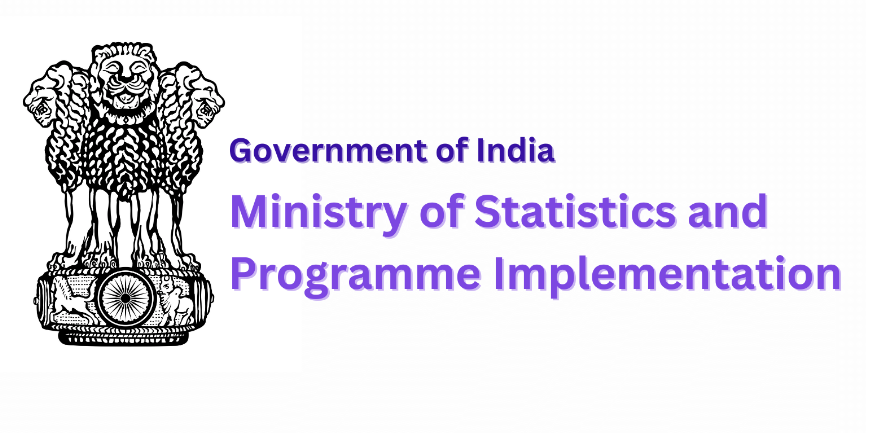Ministry of Statistics and Programme Implementation (MoSPI)
The Ministry of Statistics and Programme Implementation (MoSPI) is a ministry of the Government of India responsible for the development and maintenance of a sound statistical system in the country. It is the nodal agency for planned and organized collection, processing, and dissemination of statistics at the national level. The ministry is headquartered in New Delhi and is currently headed by the Minister of State (Independent Charge), Rao Inderjit Singh.
History
The Ministry of Statistics and Programme Implementation was formed in October 1999 by merging the Department of Statistics and the Department of Programme Implementation. The Department of Statistics was initially set up in 1950 as a part of the Cabinet Secretariat and was later transferred to the Ministry of Planning in 1973. The Department of Programme Implementation was created in 1985 to monitor the implementation of central sector projects and schemes.
Organizational Structure
The ministry comprises two main wings: the Statistics Wing and the Programme Implementation Wing. The Statistics Wing consists of the Central Statistics Office (CSO) and the National Sample Survey Office (NSSO). The CSO is responsible for the coordination of statistical activities in the country and the maintenance of statistical standards. The NSSO conducts large-scale sample surveys on various socio-economic aspects of the population.
The Programme Implementation Wing monitors the implementation of central sector infrastructure projects costing Rs. 150 crores and above. It also monitors the implementation of flagship programmes and schemes of the Government of India, such as the Member of Parliament Local Area Development Scheme (MPLADS) and the Twenty Point Programme.
Key Initiatives and Publications
The ministry releases several key publications and reports, including:
- National Accounts Statistics: It provides estimates of national income, consumption expenditure, capital formation, and other macroeconomic aggregates.
- Annual Survey of Industries: It provides comprehensive data on the growth, composition, and structure of the organized manufacturing sector in India.
- Periodic Labour Force Survey: It provides estimates of employment, unemployment, and other labour force indicators at the national and state levels.
- Energy Statistics: It presents comprehensive data on the energy sector, including production, consumption, and import-export of various energy sources.
The ministry has also launched several initiatives to strengthen the statistical system in the country. These include the National Programme for Improving the Quality of Statistics in India (NPIQSI), which aims to enhance the quality and credibility of official statistics, and the National Data Warehouse, which serves as a centralized repository of all official statistics.
Contribution to Policy-Making
The Ministry of Statistics and Programme Implementation plays a crucial role in evidence-based policy-making by providing reliable and timely data on various socio-economic aspects of the country. The data and reports released by the ministry are used by the government, researchers, and other stakeholders for planning, policy formulation, and decision-making.
The ministry also works closely with international organizations such as the United Nations and the World Bank to ensure that India’s statistical system is in line with international standards and best practices.
The Ministry of Statistics and Programme Implementation is a key institution in the Government of India, responsible for the development and maintenance of a robust statistical system in the country. Through its various initiatives and publications, the ministry contributes significantly to evidence-based policy-making and decision-making at the national level.


